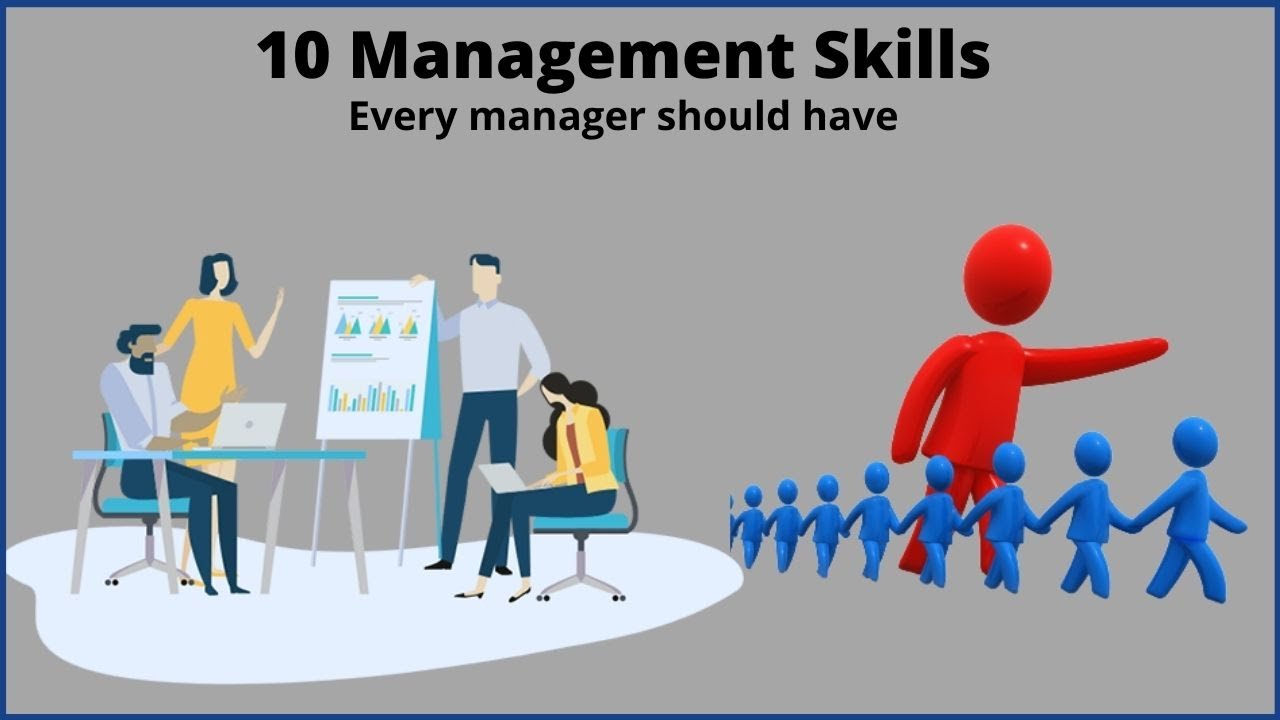Engagement management has emerged as a pivotal role in today's fast-paced businessenvironment. Engagement managers serve as the vital link between clients and organizations, ensuring effective communication, successful project delivery, and client satisfaction. But is engagement management a good careerpath? Let's delve into the various aspects of this role to determine its suitability.
How To Become An Engagement Manager?
Becoming an engagement manager requires a combination of education, skills, experience, and personal qualities. Here are some steps you can take to pursue a career as an engagement manager:
- Earn a Relevant Degree -While there is no specific degree required, a bachelor's or master's degree in businessadministration, management, marketing, or a related field can provide a strong foundation for a career in engagement management.
- Develop Key Skills -Acquire and hone essential skills such as communication, leadership, problem-solving, organizational, and relationship-building skills. These skills will be crucial in effectively managing client relationships and projects.
- Gain Professional Experience -Seek opportunities to gain relevant professional experience. This can include working in project management, client services, consulting, or other roles that involve working with clients and cross-functional teams.
- Familiarize Yourself with Industry -Develop a deep understanding of the industry or industries in which you wish to specialize as an engagement manager. Stay updated on industry trends, challenges, and best practices.
- Networking and Building Relationships -Build a strong professional network by attending industry events, joining relevant associations, and connecting with professionals in the field. Networking can open doors to potential job opportunities and valuable mentorship.
- Seek Certification (Optional) -Consider pursuing certifications that demonstrate your expertise in project management or related fields, such as Project Management Professional (PMP) certification. While not mandatory, certifications can enhance your credentials and marketability.
- Apply for Entry-Level Positions -Look for entry-level positions in engagement management, project management, or client services roles. These positions can provide valuable hands-on experience and a pathway to advancing your career.
- Demonstrate Leadership -Showcase your leadership abilities by taking on responsibilities, leading projects, and effectively managing teams. Demonstrate your ability to handle challenging situations, meet deadlines, and deliver successful outcomes.
- Continued Learning and Professional Development -Stay updated with industry trends, emerging technologies, and best practices. Attend workshops, seminars, and training programs to enhance your knowledge and skills as an engagement manager.
- Prove Your Worth -Consistently deliver exceptional results, exceed client expectations, and build a strong track record of successful projects. Your performance and reputation will contribute to your advancement as an engagement manager.
What Does An Engagement Manager Do?

A Day in the Life of an Engagement Manager
An engagement manager plays a crucial role in facilitating successful client relationships and managing projects within an organization. Their responsibilities can vary depending on the industry and organization, but here are some common tasks and duties performed by engagement managers:
- Client Relationship Management -Engagement managers act as the primary point of contact for clients, building and maintaining strong relationships. They understand clients' needs, objectives, and expectations, ensuring effective communication and client satisfaction throughout the project lifecycle.
- Project Management -They oversee and manage projects from initiation to completion. This includes defining project scopes, creating project plans, allocating resources, setting timelines, and monitoring progress. Engagement managers ensure that projects are delivered on time, within budget, and meet quality standards.
- Team Coordination -They collaborate with cross-functional teams, such as consultants, analysts, designers, and developers, to ensure the successful execution of projects. Engagement managers provide guidance, assign tasks, and facilitate effective teamwork to achieve project goals.
- Scope and Requirement Analysis -They work closely with clients to understand their business objectives and translate them into project requirements. Engagement managers conduct thorough analysis and feasibility studies, ensuring that projects align with clients' goals and expectations.
- Risk Management -They identify potential risks and develop mitigation strategies to minimize project disruptions. Engagement managers monitor project risks, proactively address issues, and make timely adjustments to ensure project success.
- Budgeting and Financial Management -They oversee project budgets, track expenses, and ensure cost control. Engagement managers collaborate with finance teams to accurately forecast project costs and ensure financial objectives are met.
- Quality Assurance -They maintain high standards of quality throughout the project lifecycle. Engagement managers implement quality control processes, conduct project reviews, and ensure that deliverables meet or exceed client expectations.
- Client Presentations and Reporting -They prepare and deliver presentations to clients, providing updates on project progress, and milestones achieved, and addressing any concerns or issues. Engagement managers also create comprehensive project reports, documenting key findings, recommendations, and lessons learned.
- Business Development Support -They collaborate with business development teams to identify new opportunities, develop proposals, and participate in client pitches. Engagement managers contribute their expertise to win new clients and expand business relationships.
- Continuous Improvement - They stay updated with industry trends, best practices, and emerging technologies. Engagement managers proactively seek opportunities to enhance project management methodologies, streamline processes, and improve client satisfaction.
Engagement Manager Jobs
As an engagement manager, you can find job opportunities in various industries and organizations. The specific job titles may vary, but here are some common job titles related to engagement management:
- Engagement Manager -This is the most common job title for professionals specializing in engagement management. Engagement managers oversee client relationships, manage projects, and ensure successful project delivery.
- Client Engagement Manager -This role focuses specifically on managing client relationships, ensuring client satisfaction, and fostering long-term partnerships.
- Project Manager -While not exclusive to engagement management, project manager roles often involve aspects of engagement management. Project managers are responsible for planning, executing, and monitoring projects, including managing client relationships.
- Consulting Manager -In consulting firms, engagement managers may be referred to as consulting managers. They lead consulting engagements, manage client relationships, and oversee the delivery of consulting services.
- Account Manager -Some organizations use the title of account manager for professionals who primarily manage client relationships and serve as the main point of contact for clients.
- Business Development Manager -In certain cases, engagement managers may also be involved in business development activities, such as identifying new clients, nurturing leads, and contributing to the growth of the organization.
- Client Services Manager -This role focuses on providing exceptional client services, ensuring client satisfaction, and managing client accounts.
- Program Manager -In larger organizations or complex projects, engagement managers may take on the role of the program manager. Program managers oversee multiple projects and coordinate their interdependencies to achieve strategic objectives.
- Customer Success Manager -In the software or technology industry, engagement managers may be referred to as customer success managers. They are responsible for ensuring the success and satisfaction of clients using their organization's products or services.
- Operations Manager -In certain contexts, engagement managers may have responsibilities related to operations management, such as overseeing operational processes, resource allocation, and project execution.
Engagement Manager Career Paths

What is an Engagement Manager?
A career as an engagement manager can open up various paths for professional growth and advancement. Here are some common career paths that engagement managers may pursue:
- Senior Engagement Manager -Experienced engagement managers can progress to senior-level roles within their organizations. Senior engagement managers take on more complex projects, and larger client portfolios, and may have additional responsibilities such as mentoring junior engagement managers.
- Client Partner or Account Director -Engagement managers with a strong track record of success and exceptional client relationship management skills may transition into roles as client partners or account directors. In these positions, they focus on building and maintaining strategic relationships with key clients, driving business growth, and overseeing a portfolio of accounts.
- Program Manager -As engagement managers gain experience in managing multiple projects and coordinating their interdependencies, they may transition into program manager roles. Program managers oversee and align multiple projects within a program to achieve strategic objectives and ensure successful program delivery.
- Business Development Manager -Engagement managers with strong business acumen and a knack for identifying and pursuing new opportunities may move into business development roles. Business development managers focus on generating new business, expanding client relationships, and driving revenue growth for the organization.
- Consulting Practice Manager -In consulting firms, engagement managers may progress to consulting practice manager roles. Practice managers are responsible for overseeing a specific practice area, managing teams of consultants, defining service offerings, and driving overall practice growth.
- Operations Manager -Some engagement managers may choose to transition into operations management roles. Operations managers oversee the operational aspects of projects, such as resource allocation, process improvement, and project delivery efficiency.
- Entrepreneurship -With the experience and expertise gained as engagement managers, some professionals may choose to start their own consulting firms or venture into entrepreneurship, leveraging their skills to provide consulting services or solutions in specific industries or domains.
- Executive Leadership -Engagement managers who demonstrate exceptional leadership abilities, strategic thinking, and business acumen may progress to executive leadership roles within organizations. These positions could include titles such as Chief Operating Officer (COO), Vice President (VP), or Director of Client Services.
Entry Level Jobs For Becoming An Engagement Manager
To embark on a career path toward becoming an engagement manager, gaining relevant experience through entry-level positions is a great starting point. Here are some entry-level jobs that can provide a foundation for becoming an engagement manager:
- Project Coordinator -Project coordinators assist in managing project activities, coordinating tasks, and supporting project teams. This role helps develop essential project management skills and provides exposure to client interactions and project execution.
- Client Services Associate -Working as a client services associate involves supporting client relationships, assisting with client inquiries and requests, and ensuring client satisfaction. This role provides valuable experience in understanding client needs and managing client expectations.
- Business Analyst -As a business analyst, you will work on gathering and analyzing data, conducting research, and supporting project teams with insights and recommendations. This role helps develop problem-solving, analytical, and communication skills necessary for an engagement manager.
- Consulting Analyst -In consulting firms, entry-level consulting analysts support engagement teams in research, data analysis, and project deliverables. This role offers exposure to client projects, teamwork, and consulting methodologies.
- Account Coordinator -Account coordinators provide support in managing client accounts, coordinating client communications, and assisting with project coordination. This position allows you to develop client relationship management skills and gain exposure to project management processes.
- Junior Project Manager -Junior project managers work closely with project managers, assisting in project planning, monitoring progress, and coordinating team activities. This role provides hands-on experience in project management and client engagement.
- Sales Associate/Assistant -Working in sales can offer valuable insights into client acquisition, business development, and understanding client needs. Sales roles involve building relationships, pitching products/services, and collaborating with cross-functional teams.
- Customer Success Associate -In technology or SaaS companies, customer success associates work closely with clients to ensure their success and satisfaction with the company's products or services. This role involves proactive customer engagement, problem-solving, and relationship-building.
- Marketing Coordinator -Marketing coordinators support marketing initiatives, including client communication, campaign execution, and event management. This role helps develop communication and project management skills.
- Operations Associate -Working in operations provides exposure to managing project resources, coordinating logistics, and optimizing processes. This role develops organizational and coordination skills essential for an engagement manager.
Average Salary For An Engagement Manager
The average salary for an engagement manager can vary depending on factors such as the industry, location, level of experience, and the size of the organization. Salaries can also differ between countries and regions. However, to provide a general idea, let's consider the average salary range for engagement managers in the United States.
According to data from salary research websites and job portals, the average base salary for an engagement manager in the United States ranges from approximately $70,000 to $130,000 per year. This range can be influenced by factors such as the candidate's experience level, the industry they work in (e.g., consulting, technology, professional services), and the scope of responsibilities involved.
Engagement Manager Education
Education requirements for engagement managers can vary depending on the industry, organization, and specific job requirements. While there is no strict educational pathway to becoming an engagement manager, many employers prefer candidates with a combination of education and relevant experience. Here are some common educational paths that can be beneficial for aspiring engagement managers:
- Bachelor's Degree -A bachelor's degree in a relevant field can provide a strong foundation for a career in engagement management. Common majors include business administration, management, marketing, communications, or a related field. A bachelor's degree demonstrates a solid understanding of business principles, communication skills, and foundational knowledge in project management.
- Master's Degree -Although not always required, a master's degree can enhance your qualifications and open up additional career opportunities. A Master of Business Administration (MBA) or a Master's in Project Management can provide advanced knowledge in strategic management, leadership, and project execution, which are valuable for engagement managers.
- Certifications -While not mandatory, certifications can help showcase your expertise and commitment to the field. Relevant certifications for engagement managers include the Project Management Professional (PMP) certification offered by the Project Management Institute (PMI). This certification validates your project management skills and knowledge.
- Continuing Education and Professional Development -Engagement managers should be committed to continuous learning and staying updated with industry trends, best practices, and emerging technologies. This can be achieved through attending workshops, seminars, and conferences, and pursuing professional development courses related to project management, client relationship management, and leadership.
In addition to formal education, it's crucial for engagement managers to develop a range of skills through practical experiences, such as communication, leadership, problem-solving, and relationship-building skills. Hands-on experience in project management, client services, or consulting roles can be highly valuable in preparing for a career as an engagement manager.
Top Skills For An Engagement Manager

Management skills | 10 Management skills every manager should have.
Being an effective engagement manager requires a diverse set of skills that encompass project management, client relationship management, communication, leadership, and problem-solving. Here are some of the top skills for an engagement manager:
- Project Management -Strong project management skills are essential for an engagement manager. This includes the ability to plan and organize projects, define project scopes and objectives, allocate resources, create project schedules, and monitor progress to ensure timely and successful project delivery.
- Client Relationship Management -Building and maintaining strong client relationships is a key aspect of an engagement manager's role. This includes effective communication, active listening, understanding client needs, managing expectations, and ensuring client satisfaction throughout the project lifecycle.
- Leadership and Team Management -Engagement managers need strong leadership skills to guide project teams, delegate tasks, inspire and motivate team members, foster collaboration, and resolve conflicts. They should be able to provide clear direction, set expectations, and drive team performance.
- Communication Skills -Excellent communication skills are critical for an engagement manager. They must be able to communicate effectively with clients, project teams, and stakeholders. This includes verbal and written communication, active listening, presenting ideas, and facilitating productive discussions.
- Problem-Solving and Decision-Making -Engagement managers encounter various challenges and must be adept at problem-solving and decision-making. They should be able to identify issues, analyze data, generate creative solutions, make informed decisions, and adapt plans as needed to overcome obstacles.
- Business Acumen -An understanding of business principles, industry trends, and market dynamics is important for an engagement manager. They should have a solid grasp of the organization's goals, strategies, and financial aspects to align projects with business objectives and make strategic recommendations.
- Analytical Skills -Analytical skills are valuable for an engagement manager to assess project data, measure performance, identify trends, and make data-driven decisions. They should be able to analyze complex information, interpret findings, and provide insights to support project outcomes.
- Negotiation and Influencing -Engagement managers often need to negotiate with clients, stakeholders, and team members to reach a consensus and achieve project goals. They should be skilled in persuasive communication, influencing, and finding win-win solutions.
- Adaptability and Flexibility -The ability to adapt to changing circumstances and handle unexpected challenges is crucial for an engagement manager. They should be comfortable working in dynamic environments, adjusting plans as needed, and embracing change.
- Client Focus and Business Development -A strong focus on understanding client needs and delivering value is important for an engagement manager. They should actively seek opportunities to build long-term client relationships and contribute to business development efforts.
People Also Ask
Is Being An Engagement Manager A Good Career Choice?
Being an engagement manager can be a rewarding career choice, offering opportunities for growth, impact, and diverse industry exposure.
What Are The Advantages Of Pursuing A Career As An Engagement Manager?
Pursuing a career as an engagement manager offers advantages such as diverse industry exposure, career progression, continuous learning, and transferable skills.
What Challenges Should One Consider Before Choosing Engagement Management As A Career?
Challenges to consider before choosing engagement management as a career include workload and stress, travel requirements, and the dynamics of client relationships.
What Other Career Opportunities Can Arise From Experience As An Engagement Manager?
Experience as an engagement manager can open doors to higher-level positions such as program manager, client partner, or executive roles within organizations.
Conclusion
Engagement management can offer a rewarding career path for individuals equipped with the requisite skills and qualities. It is essential to consider the potential workload, travel requirements, and the nuances of client relationships before embarking on this career path. Ultimately, individuals who thrive in a fast-paced, client-focused environment and possess strong communication, leadership, and problem-solving skills can find fulfillment and success as engagement managers.
